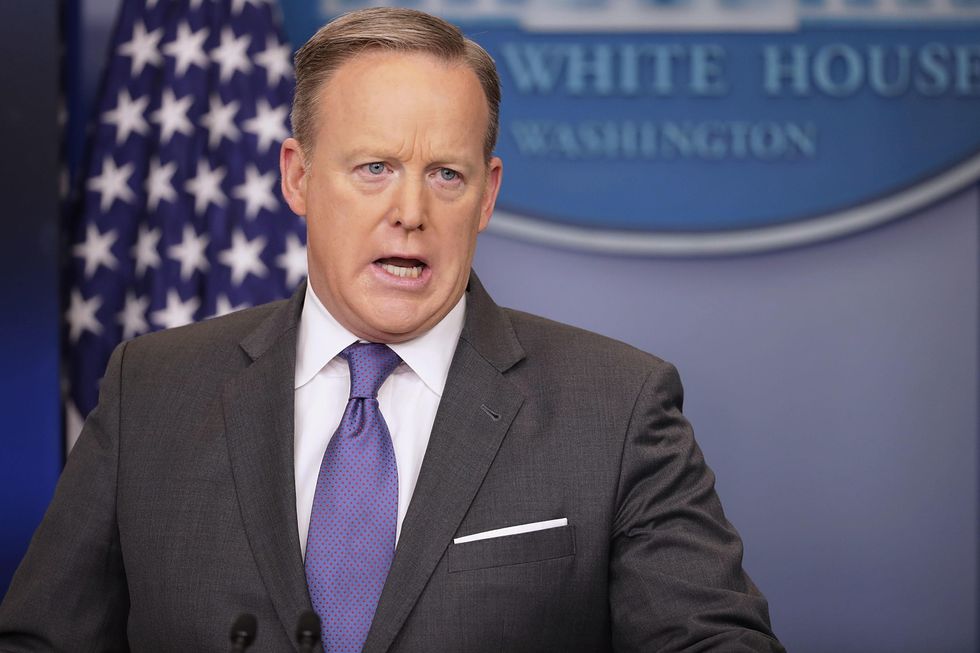
White House Press Secretary Sean Spicer reacts to reporters' questions in the Brady Press Briefing Room at the White House Jan. 30, 2017 in Washington, D.C. (Chip Somodevilla/Getty Images)

White House press secretary Sean Spicer insisted Tuesday that President Donald Trump's executive order temporarily banning travel to the U.S. by people in seven Middle Eastern countries is "not a travel ban," despite the president himself just calling it that the day before.
Referring to the "millions" of people who have come into the U.S. since Trump issued the executive order Friday, Spicer denied to reporters that the action is a ban. Spicer noted that "a ban would mean people can't get in." The order temporarily bars travel to the U.S. by people from seven countries in the Middle East — Iran, Iraq, Libya, Somalia, Sudan, Syria and Yemen — which were designated in 2015 by the Obama administration as "areas of concern" because of terrorist activity.
"What it is is to make sure that the people who are coming in are vetted properly from seven countries that were identified by the Obama administration," Spicer said.
According to Trump, 109 people were detained and held for further questioning Friday after the order went into effect. However, according to the Washington Post, that number accounts for only the people who were already in transit at the time the order was given.
It does not include the 348 people who were not allowed to board their planes between Friday night and Sunday. Those with green cards who were traveling from one of the seven countries at the time the order was issued, about 392 people, were temporarily delayed but eventually allowed in, the Post reported.
Trump himself, though, called the order a "ban" Monday in a tweet: "If the ban were announced with a one week notice, the 'bad' would rush into our country during that week. A lot of bad 'dudes' out there!"
Spicer said Tuesday that the president's wording was "derived from what the media is calling this," Mediaite reported.
.@PressSec insists Pres. Trump's executive order on immigration "is not a travel ban": https://t.co/H9n7JKbYS7 pic.twitter.com/vwtVrdjbL0
— CBS News (@CBSNews) January 31, 2017
During an interview Sunday with ABC's "This Week," Spicer also referred to the order as a ban: "It's a 90-day ban to ensure that we have further vetting restrictions so that we know who is coming to this country."
Indeed, the media have referred to the order as a "travel ban," but the Trump administration did not take issue with the phrase until Tuesday.
A few hours before the White House press briefing, Department of Homeland Security Secretary John Kelly told reporters during a news conference, "This is not — I repeat — not a ban on Muslims." Kelly then took it one step further, later saying Trump's order is "not a travel ban," but "a temporary pause that allows us to better review the existing refugee and visa vetting system," according to Business Insider.